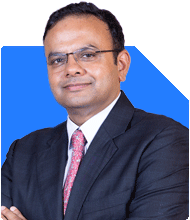Vivek Lala | Answer |Ask -Follow
Tax, MF Expert - Answered on Apr 29, 2023
Lala cleared his chartered accountancy exam in 2018 and completed his articleship with Chaturvedi and Shah. ... more

Hello.. A request to please review my portfolio. My current portfolio value is 88 lacs. I have being investing monthly in the following SIP's. Mirae asset large cap (Gr) -8000, Kotak Emerging equity (Gr) - 5000 Invesco India Multicap (Gr) -15000, HDFC Flexi Cap (Gr) -3000, SBi Flexi Cap (Gr) - 5000, Canara Robeco Flexi cap - 5000, DSP Midcap (Gr) - 3000, dsp tOP 100 Equity - 1000, Nippon India Low duration (Gr) - 3000, Nippon India Multi cap (Gr) - 10000, Nippon India Tax saver - 1000. I plan to retire in the next 7 years. Would be great if you could give me an approximate valuation of my portfolio at that point of time. It would help me with my retirement planning
In order to retire you need to first figure out your monthly expenses at the time of retirement. This will tell you what exact corpus you need at the time. For example you need 1.5L per month after 7 years i.e 18L per year, you need a corpus of 18L/6% = 3Crs
In order to get to 3crs, your portfolio of 88L will grow to 1.94crs approx at 12% and the current sip figure will grow to 77L approx at 12 % making a total of 2.71crs. Which will be short of 29L of your target. Hence adjust your SIP amounts according to your goals.
In order to get enhanced returns, one should have a very focused portfolio of small caps , mid caps , large and mid caps , multi caps , maybe a consumption fund and a debt fund in case of emergencies.
Please note that these suggestions are based on your stated goals and the information you provided. It is always a good idea to consult with a financial advisor in person to better understand your risk tolerance, time horizon, and specific financial goals.
You may like to see similar questions and answers below
Omkeshwar Singh | Answer |Ask -Follow
Head, Rank MF - Answered on Sep 09, 2020
Abhishek Dev | Answer |Ask -Follow
Financial Planner - Answered on Oct 03, 2023
Ramalingam Kalirajan |9854 Answers |Ask -Follow
Mutual Funds, Financial Planning Expert - Answered on May 15, 2024
Ramalingam Kalirajan |9854 Answers |Ask -Follow
Mutual Funds, Financial Planning Expert - Answered on Apr 29, 2024
Dr Deepa Suvarna |163 Answers |Ask -Follow
Paediatrician - Answered on Jul 26, 2025
Radheshyam Zanwar |5828 Answers |Ask -Follow
MHT-CET, IIT-JEE, NEET-UG Expert - Answered on Jul 26, 2025
Radheshyam Zanwar |5828 Answers |Ask -Follow
MHT-CET, IIT-JEE, NEET-UG Expert - Answered on Jul 26, 2025
Radheshyam Zanwar |5828 Answers |Ask -Follow
MHT-CET, IIT-JEE, NEET-UG Expert - Answered on Jul 26, 2025
Radheshyam Zanwar |5828 Answers |Ask -Follow
MHT-CET, IIT-JEE, NEET-UG Expert - Answered on Jul 26, 2025
Nayagam P P |9447 Answers |Ask -Follow
Career Counsellor - Answered on Jul 26, 2025
Nayagam P P |9447 Answers |Ask -Follow
Career Counsellor - Answered on Jul 26, 2025
Anu Krishna |1655 Answers |Ask -Follow
Relationships Expert, Mind Coach - Answered on Jul 26, 2025
Nayagam P P |9447 Answers |Ask -Follow
Career Counsellor - Answered on Jul 26, 2025
Nayagam P P |9447 Answers |Ask -Follow
Career Counsellor - Answered on Jul 26, 2025

























